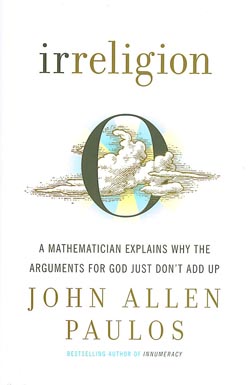Heaven can wait: John Allen Paulos’ latest book examines flawed arguments for the existence of God
|
Does God exist? Mathematics’ John Allen Paulos will tell you that he cannot prove that God doesn’t exist, but that the arguments for the existence of God are “flawed, empty and even nonsensical.”
|
 |
“I’ve had the idea for this book in the back of my mind for a long time,” said Paulos, whose other titles include Innumeracy: Mathematical Illiteracy and Its Consequences (1989) and A Mathematician Plays the Stock Market (2003). “I’ve always been concerned with the topic and have touched on it tangentially in some of my previous books and in many of my columns for ABCNews.com.”
|
|
Paulos, who admits to not being very keen on theology, says even if you are religious, it can be useful to expose yourself to such arguments. He points out that the book contains some “snarky stuff, but it is not in the same vein as Christopher Hitchens’ book, where religion poisons everything.” Paulos says that he does recognize that religion can be the source of stories, narratives, ideals that enlighten and even rituals that can bind people together. But, he says, it can also be the source of fanaticism, cruelty, hatred and superstition.
|
|